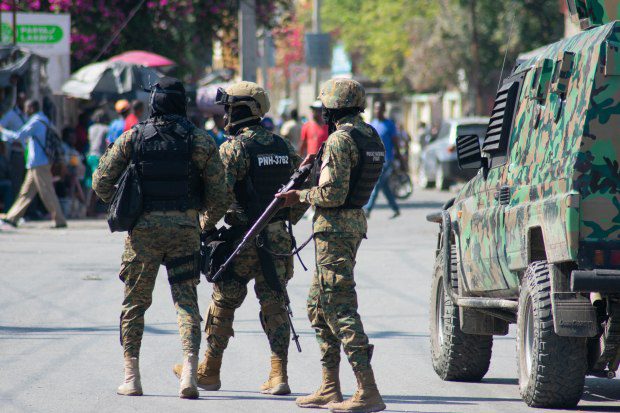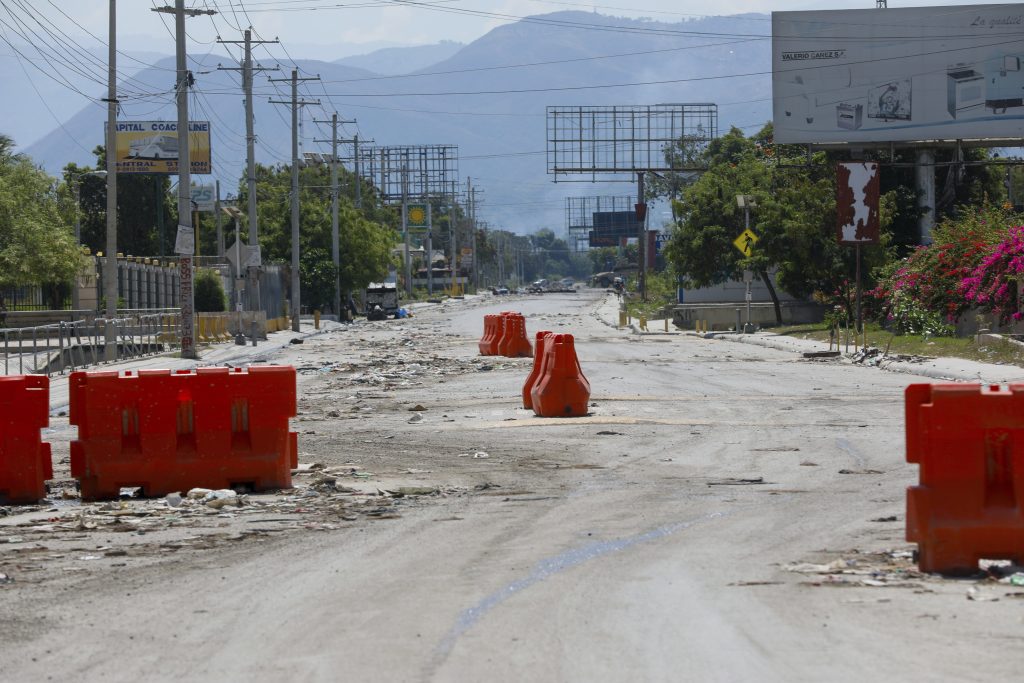PORT-AU-PRINCE, Haiti — The U.S. military announced on Sunday that it had flown in troops to increase security at the U.S. Embassy in Haiti and allow nonessential staff to depart.
The planes flew to the embassy compound, the U.S. Southern Command noted, indicating that the operation involved helicopters. It made a point to mention that “no Haitians were on board the military aircraft.” This seemed to be aimed at dispelling any speculation that high-level government officials might be leaving due to the worsening gang attacks in Haiti.
The area surrounding the embassy in the capital, Port-au-Prince, is mostly under the control of gangs.
“This airlift of personnel into and out of the Embassy is consistent with our standard practice for Embassy security augmentation worldwide, and no Haitians were on board the military aircraft,” according to the Southcom statement.
In many cases, nonessential staff can include the families of diplomats, but the embassy had already instructed nonessential employees and all family members to leave in July. The staff transported out of the embassy may have simply been rotating out, to be replaced by new employees.
The statement on Sunday said that the United States continues to focus on assisting Haitian police and coordinating some form of U.N.-authorized security deployment. However, these efforts have not been successful so far.
Haiti’s embattled prime minister, Ariel Henry, recently traveled to Kenya to advocate for the U.N.-backed deployment of a police force from the East African country to combat the gangs. However, a Kenyan court ruled in January that such a deployment would be unconstitutional.
Henry, who is facing demands to step down or establish a transitional council, remains unable to return home. He arrived in Puerto Rico on Tuesday after he was unable to land in the Dominican Republic, which borders Haiti.
On Saturday, the office of Dominican President Luis Abinader issued a statement saying that “Henry is not welcome in the Dominican Republic for safety reasons.” The Dominican Republic, which shares the island of Hispaniola with Haiti, has closed its land border.
“Given the current situation, the presence of the Haitian prime minister in the Dominican Republic is not considered appropriate,” according to the statement, adding that “this decision reflects the firm position of the Dominican government to safeguard its national security and stability.”
The statement described the security situation in Haiti as “totally unsustainable” and said that it “poses a direct threat to the safety and stability of the Dominican Republic.”
The statement predicted “the situation could deteriorate even further if a peacekeeping force is not implemented urgently to restore order.”
Caribbean leaders have called for an emergency meeting Monday in Jamaica on what they called Haiti’s “dire” situation. They have invited the United States, France, Canada, the United Nations and Brazil to the meeting.
Members of the CARICOM regional trade bloc have been attempting for months to persuade political actors in Haiti to agree to form an umbrella transitional unity government.
CARICOM stated on Friday that although regional leaders are working hard to bring opposition parties and civil society groups together to create a unity government, they are not yet at the required point.
The statement highlighted the urgent need for reaching a consensus. It emphasized that time is running out for the parties to agree on a path forward. The situation on the ground remains very serious and concerning, as reported.
In February, Henry agreed to organize a general election by mid-2025, and the international community has been attempting to find a foreign armed force willing to combat gang violence in Haiti.
CARICOM has been urging Henry to announce a power-sharing, consensus government in the interim. However, the prime minister has not yet done so, despite demands for his resignation from Haitian opposition parties and civil society groups.
Henry, a neurosurgeon, was appointed as Haiti’s prime minister following the assassination of President Jovenel Moise in July 2021.
It is not clear whether Henry will be present in Jamaica for the CARICOM meeting.
In Port-au-Prince, the police and palace guards were working to reclaim certain streets in the capital after gangs launched major attacks on at least three police stations.










